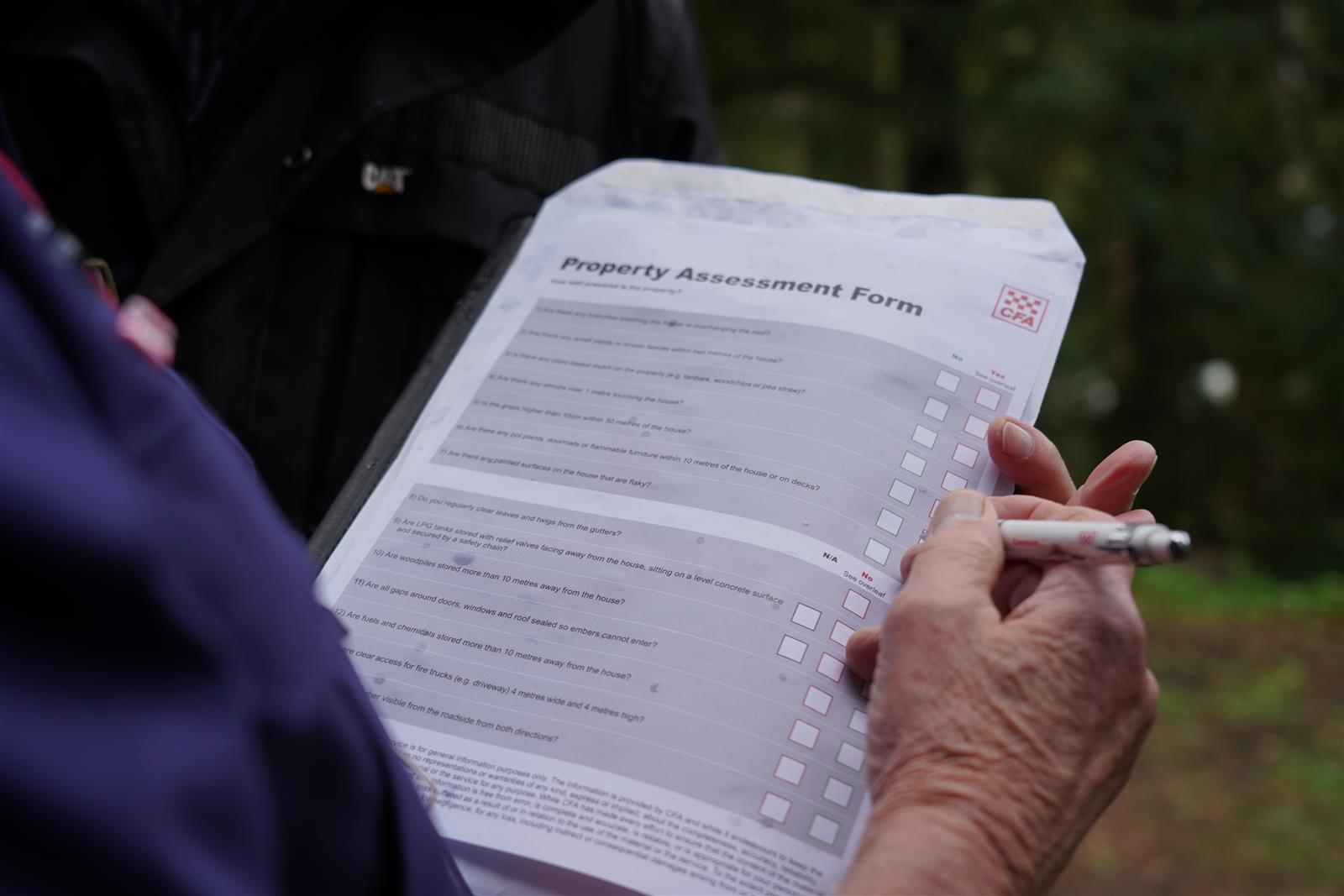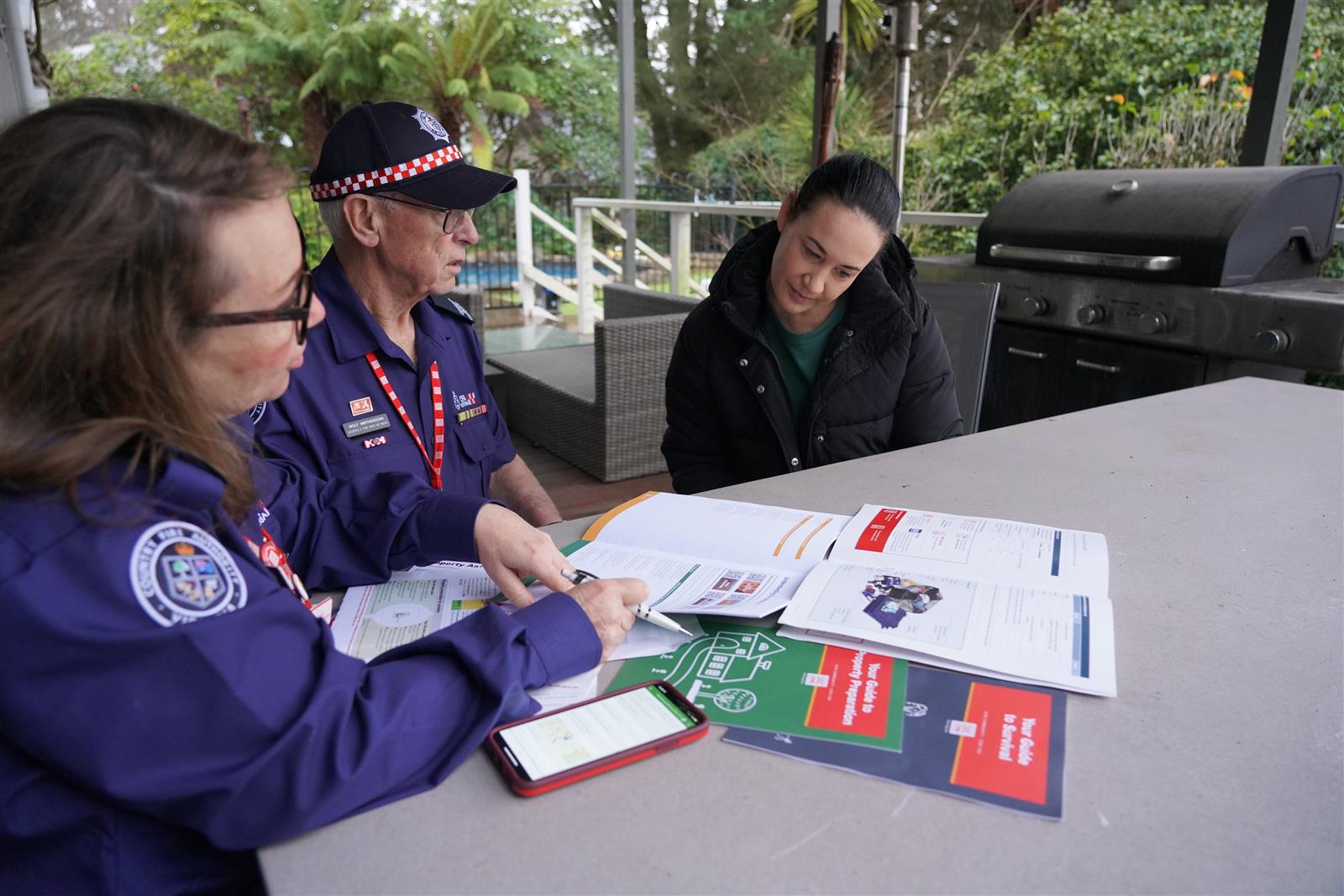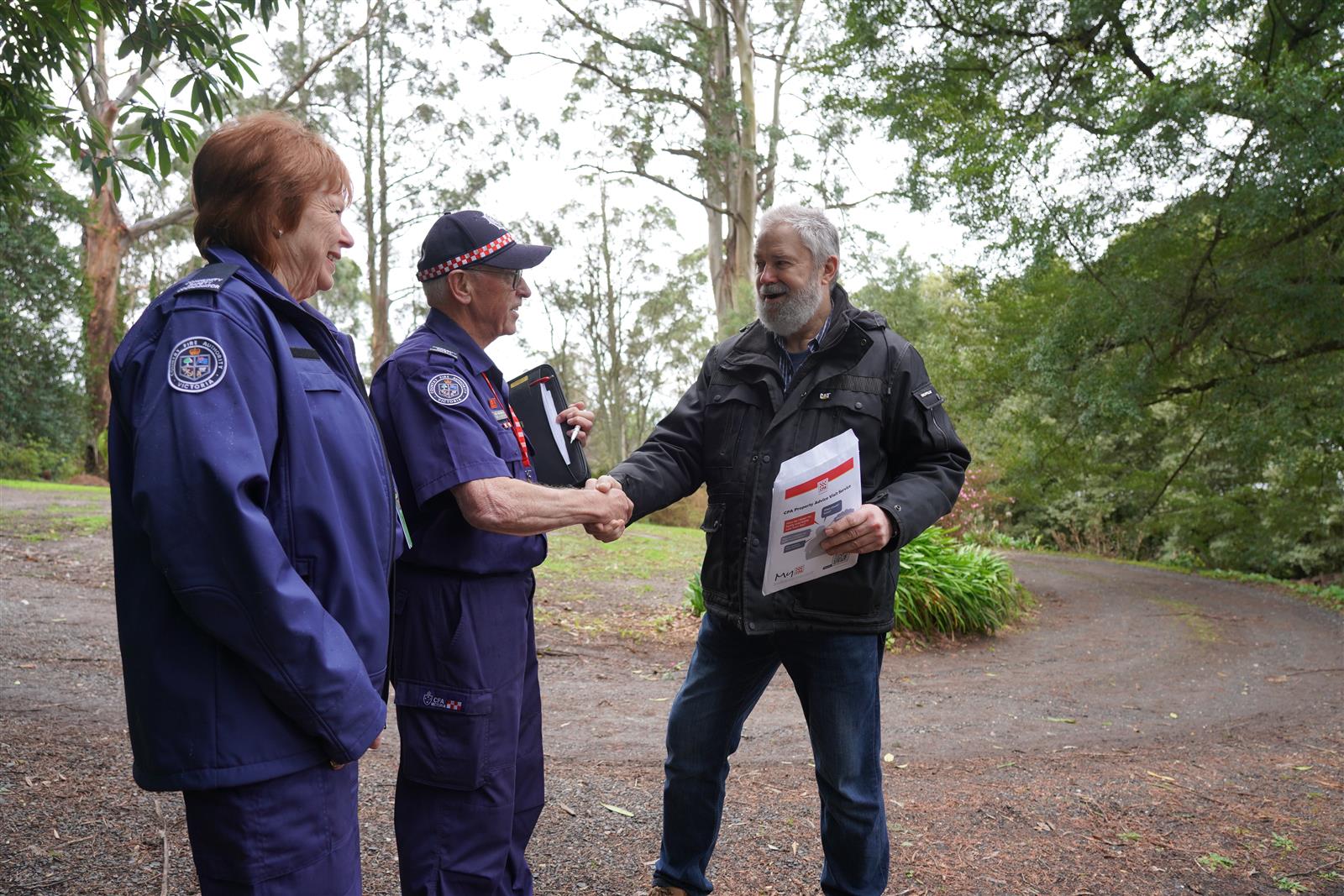New eLearning module to deliver bushfire preparedness advice
.JPG) PAVS delivery in Ferny Creek
PAVS delivery in Ferny Creek
CFA’s Community Engagement Team is excited to announce the launch of a new eLearning module CFAPAVIND Delivering the Property Advice Visit Service.
It is now live on the Learning Hub in the catalogue under the Community Engagement Pathway.
The new module is designed to equip CFA members with the skills and knowledge to provide tailored bushfire safety advice to residents in Victoria’s highest-risk areas.
The Property Advice Visit Service (PAVS) is a proactive initiative that connects trained CFA members with households at risk of fire. Through tailored in person visits to local properties, members help residents understand their local fire risk and offer practical, property-specific advice to improve preparedness. Each visit is supported by templates and printed resources to assist residents to take meaningful action and plan for fire.
CFA Community Engagement Presenter in District 13 Phil Cuthbert shared some insights about his experiences with delivering PAVS.
"We’ve got that ability to talk about their local risk specific to them. Other meetings give generalised information, but this is really targeted to that household and that street,” Phil said.
“This is the start of our relationship with that homeowner. The brigade comes in, has a conversation. They will have 1,000 questions afterwards. So it's nice for them to be able to connect and say, OK, I can pop back to the brigade on a Sunday morning, have a cuppa and ask a few more questions. It’s about relationship-building and building trust with community.
“The key outcome is to empower them to make decisions. We make it very clear we don't make their decisions. We're not telling them what to do. We give them advice about how they can manage their risks and that's the key outcome for them.
“It’s quite funny when I visit residents and they ask how much is this going to cost. It's free. Tea and cookies? Maybe, but it is a free service. It's a service that we can provide and that makes it the pinnacle service for CFA, where we're one-on-one with a resident in the community walking around the property, giving them advice, giving them some hints and tips.”
Why complete the module?
- Make a meaningful impact on community safety and risk reduction.
- Build trust and connection with residents.
- Support informed decision-making at the household level.
- Be part of CFA’s proactive bushfire preparedness strategy.
- Inform your brigade’s local knowledge and planning.
- It’s a great refresher with new content for members who have delivered PAVS in the past.
What’s involved in a visit?
Members, in pairs, talk through the residents’ local risk, offer practical tips and provide tailored resources. Visits may be requested by residents or initiated by CFA using targeted property data and local knowledge.
Who can deliver PAVS?
Members who hold a current Working with Children Check (WWCC) with CFA listed as an organisation, and have completed the following LMS modules:
- CFAICEAWE Introduction to Community Engagement
- CFAPYPIND Child safety - Playing your part
- CFAIAFAWE Intro to Australian Fire Danger Rating System
- CFACSEIND Communicating for Community Engagement
- CFAPAVIND Delivering the Property Advice Visit Service (NEW)
Ready to get started?
To access this eLearning module, go to Members Online > Learning Hub > Community Engagement Pathway and search for CFAPAVIND Delivering the Property Advice Visit Service to begin the module. When completed, have a chat to your brigade management team about opportunities to practise and promote the service.
Does your neighbour need a visit? CFA encourages residents in high-risk areas to request a visit and urges all eligible members to complete the new eLearning module and practise with your brigade to support safer communities across Victoria.
Let’s work together to reduce bushfire risk, one property at a time.
For questions or support contact communityprograms@cfa.vic.gov.au
.JPG) Pointing out property preparedness actions
Pointing out property preparedness actions-
 Property Assessment Form
Property Assessment Form
-
 Bushfire planning conversations
Bushfire planning conversations
-
 Building trust and community connections
Building trust and community connections
-
| Submitted by |
Community Engagement |